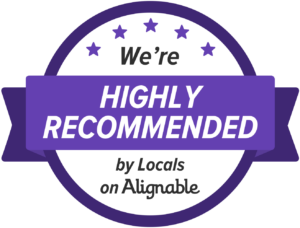Learning Disorders
Are you worried about your academic abilities? Do you feel that you or your child may be struggling or working harder then your peers, with lesser results? If so, you could benefit from the insights provided in an assessment for learning disorders.
Dr. Shannon Thomas, Psy.D.

What are the benefits of a Learning Disorders Assessment?
1. Identifying Specific Learning Difficulties
Diagnostic clarity is key to academic and vocational success, let alone psychological well-being. Psychologists conduct assessments to identify and differentiate specific learning disorders such as dyslexia (reading disorder), dyscalculia (mathematics disorder), and dysgraphia (writing disorder). These assessments pinpoint the exact nature and severity of the learning difficulties.
2. Educational Insights
Learning disorder testing provides educational insights into the nature of your psychological functioning, disorders, and treatment options. This empowers you to make informed decisions and actively participate in the therapeutic process. For instance, you will learn how you learn best. What are your intellectual strengths and what areas do you need additional assistance or formal accommodations in?
3. Clarifying Educational Needs
Learning Disorder Assessments provide clarity about the educational needs that will most benefit you at school or work. I pinpoint and share these with you by identifying your strengths and weaknesses in academic skills such as reading fluency, comprehension, math calculations, and written expression. This information guides the development of targeted educational interventions and accommodations.
These accommodations may include extended time on tests, use of assistive technology, preferential seating, and modified assignments to facilitate learning and academic success.
4. Early Intervention
Early identification through assessments allows for timely intervention strategies to support learning and academic progress. Interventions may include specialized tutoring, educational therapies, assistive technology, and classroom accommodations tailored to your unique learning profile that this Learning Disorder Assessment reveals.

Schedule a Free Consultation
I’m so glad you’re here. Let’s talk!
Dr. Shannon Thomas
Call me to schedule a free 15 minute first session to learn how I work and ask any questions you may have about the process. If I’m with another patient when you call, please leave a voicemail with your availabilities so I can call you back when you are free to talk. I look forward to connecting with you.
Phone Number
(626) 784-7115
Good Faith Estimate
If you are not using insurance to pay for therapy, then you have the right to request a “Good Faith Estimate:” an approximation of how much, based on the symptoms and treatment goals you identify during our consultation, you can expect your non-emergency mental health services to cost. If your symptoms and treatment goals do not increase from what is described in this Good Faith Estimate, you attend therapy as initially agreed upon (e.g.: one weekly 60 minute therapy session), and you receive a bill that is at least $400 more than your Good Faith Estimate, then you are permitted to dispute the bill. For questions or more information about your right to a Good Faith Estimate, visit www.cms.gov/nosurprises.

